- Home
- Julie Smith
True-Life Adventure Page 2
True-Life Adventure Read online
Page 2
“Yeah. Stan Smith told me about that. What case were you and him working on?”
“That’s confidential.”
His gray-green complexion got suddenly rosy. “Confidential, hell! This is a murder investigation. He was here to pick up a report, right?”
“If you say so.”
“I want it.”
“So get a search warrant.”
He picked up the saccharine bottle and stood up. “You better watch your step, asshole.”
I hate being called an asshole in my own house, and that was twice, but I let it go. I’d baited him and I shouldn’t have.
All the same, I didn’t think I was impeding a murder investigation. The case Jack and I were working on was pretty routine. It was a custody case, the sort that keeps private investigators in business now that California has no-fault divorce. The way it works is, one parent gets custody after the divorce, then the other parent gets mad and snatches the kid, and the one with custody hires a P. I. to find his little darling.
The only thing that made this one any different from a million others was that the Chronicle would have put it on page 1 if they’d known about it.
CHAPTER 2
Jack’s client was Jacob Koehler, the Nobel prize-winner, the guy who put genetic engineering on the map. The snatcher was Lindsay Hearne, local television’s hottest property and Koehler’s ex-wife. The kid was seven-year-old Terry Koehler, who’d been living with her daddy and his nice new wife for the last couple of years.
One Saturday about three weeks before Jack died, Lindsay picked up her daughter Terry for a weekend visit and didn’t return her on Sunday night.
That was the whole megillah. Great name recognition, but no obvious murder motive.
I was pondering the thing when the phone rang. It was Ben McGonagil of the brand-x paper, the one that comes out in the afternoon. He wanted to confirm that Jack had indeed died at my house and also he wanted to shoot the bull and pump me about Jack. I thought if he gave me a mench, the remaining P.I.’s in town might beat a path to my door and I could go on feeding Spot.
So I told him all about being Jack’s ghostwriter and nothing about the Koehler case. Then, since I didn’t have any clients to work for, I went back to Chapter 10 of my latest unpublished masterwork.
However, the muse did not sit on my shoulder. I sat there for two hours trying to get my hero out of a jam. It wouldn’t have been so bad except that I couldn’t think of a jam to get him into.
Normally I don’t smoke, but I went out for cigarettes. While I was at it, I decided to grab a bite, and while I was at that, I read the Examiner, which was hot off the presses.
McGonagil’s story was on page 1, and I was in the fifth paragraph, describing how poor Jack had rolled back his eyes and fallen over. My mench wasn’t exactly what I’d hoped for, though. McGonagil said I was Birnbaum’s “assistant.”
No doubt he thought I’d get a kick out of it, but it wasn’t going to sell any client reports.
I was still brooding about it when I got home. I parked on Chenery Street across from my house, admired its terra-cotta paint job, and wondered how I was going to make the next mortgage payment.
Spot met me at the door and I turned my mind to his future health and welfare; I even bent down to pet him, I felt so guilty about being a lousy provider.
But I told myself at least he had a comfortable place to live, with a blue-green sofa to curl up on and lots of sunny places to take naps in. The living room opened right onto the dining-room/office, which had French doors opening onto the garden, so it was always bright inside unless it was foggy outside. My combination dining table and desk stood in the center of the second room and it was the only piece of furniture in there. Otherwise, the room was a greenhouse— a perfect little jungle for a medium-sized black cat.
I surveyed it smugly. And that’s how I happened to notice that a pane in one of the French doors was broken.
I made a rapid-fire assessment of the living room. The blue-green sofa was there, and the rocking chair and the bookshelf. The Maynard Dixon painting still hung over the fireplace. The stereo was still on the little low table I’d made for it. The old wooden trunk that I’d refinished was in its accustomed corner, but there was a nice clean square on top with lots of dust around it.
My TV had been in that square an hour ago.
Quickly I went upstairs to check my camera. I was betting it would be there— if the burglar hadn’t bothered with the stereo, he probably wasn’t going to go look through a bunch of drawers. I was right.
It was a hit-and-run burglary, and it was yet another example of the way my life was going. I couldn’t help thinking that, even though I ought to have been grateful about the stereo and the camera.
I called the cops and waited. And waited some more. After about half an hour I grew restive. But I waited another twenty minutes.
Then I couldn’t stand it anymore. I didn’t know anyone in burglary, so I called Blick.
“Howard? Mcdonald here. I’ve been burglarized.”
“So call burglary.”
“I did, dammit. About an hour ago. Nobody’s turned up.”
“And you want me to goose them.”
“I’m not asking for any special privileges. I just thought you’d want to know.”
“Maybe if you’d cooperated a little better this morning, you wouldn’t be having this problem.”
“Are you saying this is deliberate?”
“I’m just saying people get what they deserve. Probably someone else in Glen Park has an emergency, but maybe the other emergency wouldn’t have happened if you’d been a better sport, you know? It’s like karma.”
I hung up and waited another half hour. And then Officers De Silva and Partridge turned up. They looked at the undusty square and the broken French door.
De Silva spoke: “Kids. They’ll probably sell the TV to some relative for about ten bucks. Zero chance of recovery.”
“Well, how about prints?”
“Prints?”
“After they broke the glass, they had to reach through the door and turn the knob. There might be prints on it.” Partridge walked over to the door, grabbed the knob, and opened and closed it a few times, obscuring any possible prints. “Yeah,” he said, “I see what you mean.”
“You guys must be pretty good friends with Inspector Blick.”
“He said you were a real true-blue friend to the department,” said Partridge, “and we should do anything we could to help you.”
“Thank him for me, will you? For taking such an interest in my karma.”
So that’s how Blick got revenge. Probably I’d tipped him to a great opportunity when I called him. So it was partly my own fault, but that only made me madder. I vowed to break his jaw if I ever saw him again.
I got my chance at eight A.M. the next day, Wednesday, when once again I opened my door to his ring. But, hell, my mother brought me up right. I asked him in and offered coffee. Some people never learn.
“Jeez, Mcdonald,” he said. “You got a hell of a gut. You ought to take up racquetball or something.”
What a prince. I thought I cut quite a figure in my blue jockey shorts, which I had pulled on upon rolling out of the rack. I also thought any jerk who got me out of said rack at that hour had a nerve running down my conformation.
“Blow it out your ass,” I said.
He didn’t miss a beat. “You have the right to remain silent. You are not required to say anything to the police at any time or to answer any questions. Anything you say can be…”
“What the hell do you think you’re doing?”
“I’m arresting you, asshole. Insulting an officer, using obscene language, and indecent exposure.”
“Indecent exposure! This is my house, douchebag.”
“Anything you say can be used against you in court. You have the right to talk to a lawyer…”
“Okay, Howard, I’m sorry. I apologize, okay?”
“That’s better.”
“I want the file on Birnbaum’s case.” He shoved a search warrant in my face.
“Why didn’t you say so, Inspector? Glad to help out. Dee-lighted. Any time I can be of service don’t hesitate to call on me.”
I was delighted. The file wasn’t going to help him one whit, and I’d made him go to the trouble of getting a search warrant and making an extra trip and that was payment for calling me an asshole the first time. Now all I owed him for was the remark about my torso, two more “assholes”, and the sympathetic assistance of Partridge and De Silva.
I went to my file cabinet and started rooting around. I looked between Bank Statements and Brochures. No joy. So I looked in front of Bank Statements and behind Brochures.
No Birnbaum.
“Just a second, Howard. I guess I’ve misplaced it.”
I went through the whole goddam drawer, but I knew I wasn’t going to find it. I could remember putting the file back, just so, after Stanley Smith left with Jack’s body.
“Howard, we’ve got a problem.”
“You got a problem, Mcdonald. I got a search warrant.”
He started pulling pillows off the sofa, books out of the bookcase.
“Howard, wait a second…”
He opened the trunk where the TV used to be. He started throwing papers on the floor— pages of novels that hadn’t been published. The editors of the world didn’t like them, but they were all I had to show for my life.
He was making me mad. And when I get mad, I get stubborn and childish. I know because sixty or eighty women friends have mentioned it in passing.
So I let him rip.
I could have stopped him, reasoned with him, told him about the Koehlers, let him go look up Jack’s copy of the file, parted friends. But I didn’t. I let him tear my house apart because I knew he wouldn’t find the file and it would frustrate the hell out of him.
One day maybe I’d grow up. If I did, that would entitle me to call all the women in my past who’d said they might consent to, say, have lunch or something when it occurred. It could have been a real boon to my social life. But it didn’t happen that day.
Blick wasn’t the soul of emotional maturity himself. There was simply no need to empty Spot’s litter box on the kitchen floor.
Naturally, he didn’t find the file because it wasn’t there to find. If I’d gotten a little more cooperation on my burglary, I might have pointed out the obvious— that whoever had taken my TV had done it only to make the thing look routine.
The point was to steal the file.
CHAPTER 3
Whoever had stolen it apparently hadn’t known about me until McGonagil’s story came out in the Examiner, identifying me as Jack’s assistant. And then he hadn’t wasted any time. So it looked a lot like Blick was right, after all— the murder had something to do with the Koehler case.
But maybe not. There were about eight other cases in the file. How could I be sure the Koehler reports were the ones the murderer wanted?
And why should I care, anyway? I was thinking like a journalist, a habit I thought I’d kicked.
But the murder had been committed in my house, and my house had later been burglarized. That meant someone had committed two outrages against me, Paul Mcdonald. That was why I should care.
I knew an easy way to find out the answer, but I needed professional help. I phoned Booker Kessler.
Booker was a little squirt about twenty-six years old, five feet six inches tall, and 135 pounds heavy. He had curly red hair, freckles, and usually a gorgeous woman on each arm. I never saw a guy that did so well with the ladies— he must have been nonthreatening or something. Either that or he was hung like a Clydesdale.
He wasn’t home. He kept extremely irregular hours, so he could have been any place in San Francisco, but I was betting he was having a long lunch with a lovely. I called Perry’s, the Washington Square Bar and Grill, and McArthur Park, which was where I found him. I told him to wait for me.
When I got there, he was lounging amid the wicker and ferns in jeans and a T-shirt, looking about twelve. His companion was Asian, permed, silk-jumpsuited, and red-lipsticked. She looked like she was babysitting.
Booker jumped up. “Paul! It’s great you could join us.”
“Booker, I need a favor.”
“Sure. Absolutely. Meet Denise. Denise, this is Paul Mcdonald, the writer I was telling you about.”
Denise smiled and gave me a look that said she’d be just thrilled to spend the afternoon committing unnatural acts; I didn’t think it meant anything, it was just a way she had when she wanted something.
“Denise wants to be a writer,” said Booker happily. “Paul, what are you drinking?”
“Gin and tonic,” I said, and tried to look pleased. I wasn’t. I wanted to get on with business. Booker owed me, but all the same, he was apparently planning to extract a favor for my favor— I was going to have to sit there for an hour or two and give Denise job-hunting ideas.
Now you might not think an hour would be that important, considering I wasn’t on too tight a schedule, and maybe it wasn’t. But I was impatient and I hated doing dirty work. This was going to be dirty work: I couldn’t tell Denise the truth because Booker wanted me to make her happy and the truth about journalism wouldn’t do that. On the other hand, if I were somehow responsible for her getting a job on the Chronicle, that would make her miserable and I would have it on my conscience.
I plunged in, hoping she wasn’t talented enough to get a writing job and ruin her life. “What are you doing now, Denise?”
“Working at I. Magnin. In the cosmetics department. And I’m registered at a couple of modeling agencies, but you can’t support yourself modeling in this town.”
That boded well. She’d probably never touched a typewriter and never would. I’d met plenty of people like her, people who were unhappy with whatever they were doing— driving a cab or tending bar or being mayor— and thought they’d go into writing one day. They never did and lucky for them— I was willing to bet Denise had made more from part-time modeling in the last month than I had from writing in the last year.
So I gave her a couple of names of editors to look up, told some hilarious newspaper anecdotes, and didn’t tell her I’d happened to meet Booker on a story. I didn’t think he’d want her to know about that because the story was all about how a kid from the right side of the tracks got into burglary. Booker thought that, in his case, it had something to do with the fact that his mother left his father for another woman about the time he was starting to shave. He was in analysis.
Anyway, I must have been suitably amusing because pretty soon it was almost the cocktail hour and Denise had another date. Booker did too, but he agreed to put it off for a couple of hours.
We went to the men’s room while I told him what I wanted.
“Easiest thing in the world,” he said. “You can do it yourself. See, you just take your Visa card and…”
“I need moral support.” Also, I didn’t have a Visa card.
When the Visa people closed my account for nonpayment, I cut my card in a zillion little pieces, smeared them with cat food, and sent them to Visa central. So I was a little short on burglary tools.
But I wasn’t going to have to tell Booker all that and I knew it. In the first place, he owed me— not only had I set Denise on a new career path, but I’d also posted bond for him once. In the second place, he loved his work.
Jack’s office was on Kearny Street, in one of those two-elevator buildings you can miss if you don’t pay strict attention to the street numbers. I can say this with perfect confidence because Booker and I were gassing a bit and in fact we did miss it. That’s how relaxed Booker is about his job.
There was nobody waiting for the elevator, so we took it to the fifth floor. Jack’s office was on the fourth floor, but Booker said you always had to walk down one in case somebody was waiting for the elevator on the floor you wanted. If you g
ot out and walked past them, they might remember you.
So we walked down and nobody was on the fourth floor, at least in Jack’s corridor. It was an empty white tunnel with a wine-red carpet. Jack’s office was number 443. The lettering on the door was very discreet— “Jack Birnbaum,” period. Not “Jack Birnbaum, Ace Private Dick” or even “Birnbaum Investigations.” Just “Jack Birnbaum.” Maybe he’d had more class than I gave him credit for.
Booker tried the door, found it locked, and shrugged. “Half the time they’re open,” he explained, not even whispering. This job was a piece of cake for him, but parts of my Xtra-large front-pocketed Western-style shirt were getting a little clammy. I wished he’d shut up and get on with it.
My wish was granted instantly. Booker simply reached in his pocket, pulled out a key, and opened the door. I was impressed. “How’d you do that?”
“Luck,” he said, stepping into the office. I stepped in too and we closed the door behind us. Booker turned on a light and held up a key ring with about fifty keys on it. He turned three of them up. “I knew it had to be one of these, and I happened to guess right on which one.”
“Do you always carry all those keys?”
He thought a minute. “Not if I’m going to the beach or playing tennis. Never jogging or sailing, and rarely cruising bars. Other than that, yes. You never know when you might pass a tempting little setup.”
“Glad I could oblige you.”
“Next time make it a little tougher, okay? These easy ones are bad for morale— I mean, you might as well be a bank teller, right? Or sell insurance or drill teeth or something. I like a job with a little challenge to it.”
“You want to watch the door while I go through the files?”
“You expecting somebody?”
“Maybe. I got a feeling.” But I wasn’t and I didn’t. I just said that to cheer Booker up, to give sentry duty a little edge so he wouldn’t feel he’d wasted his time.
I went straight to Jack’s files and looked up Koehler. Then I looked up the names of all the other clients in the stolen file. Then I looked through Jack’s desk and on top of it and all around the office.

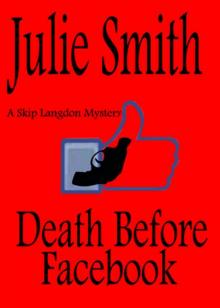 Death Before Facebook (Skip Langdon #4) (Skip Langdon Mystery) (The Skip Langdon Series)
Death Before Facebook (Skip Langdon #4) (Skip Langdon Mystery) (The Skip Langdon Series) P.I. On A Hot Tin Roof
P.I. On A Hot Tin Roof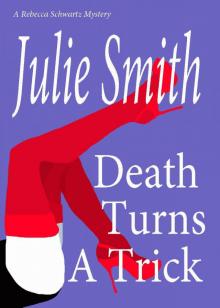 Death Turns A Trick (Rebecca Schwartz #1) (A Rebecca Schwartz Mystery) (The Rebecca Schwartz Series)
Death Turns A Trick (Rebecca Schwartz #1) (A Rebecca Schwartz Mystery) (The Rebecca Schwartz Series) The Axeman's Jazz (Skip Langdon Mystery Series #2) (The Skip Langdon Series)
The Axeman's Jazz (Skip Langdon Mystery Series #2) (The Skip Langdon Series) The Kindness of Strangers (Skip Langdon Mystery #6) (The Skip Langdon Series)
The Kindness of Strangers (Skip Langdon Mystery #6) (The Skip Langdon Series)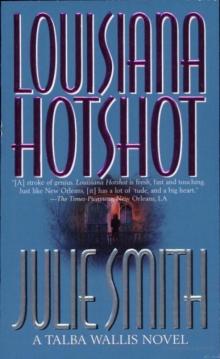 Louisiana Hotshot
Louisiana Hotshot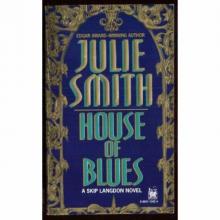 House of Blues
House of Blues Jazz Funeral (Skip Langdon #3) (Skip Langdon Mystery) (The Skip Langdon Series)
Jazz Funeral (Skip Langdon #3) (Skip Langdon Mystery) (The Skip Langdon Series) Tourist Trap (Rebecca Schwartz #3) (A Rebecca Schwartz Mystery) (The Rebecca Schwartz Series)
Tourist Trap (Rebecca Schwartz #3) (A Rebecca Schwartz Mystery) (The Rebecca Schwartz Series)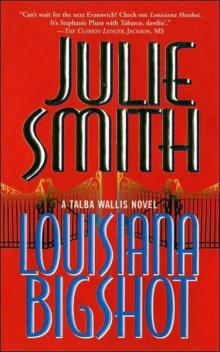 Louisiana Bigshot
Louisiana Bigshot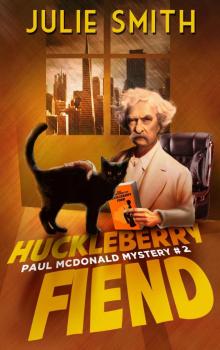 Huckleberry Fiend
Huckleberry Fiend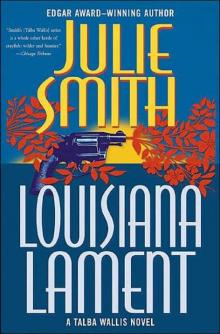 Louisiana Lament
Louisiana Lament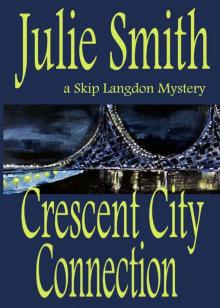 Crescent City Connection (Skip Langdon Mystery #7) (The Skip Langdon Series)
Crescent City Connection (Skip Langdon Mystery #7) (The Skip Langdon Series)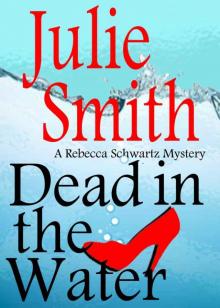 Dead In The Water (Rebecca Schwartz Mystery #4) (The Rebecca Schwartz Series)
Dead In The Water (Rebecca Schwartz Mystery #4) (The Rebecca Schwartz Series)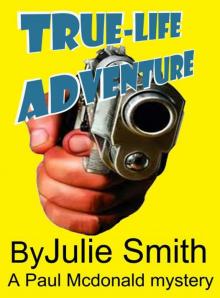 True-Life Adventure
True-Life Adventure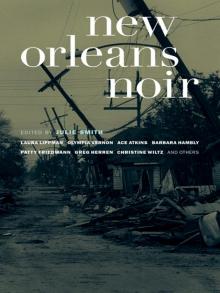 New Orleans Noir
New Orleans Noir